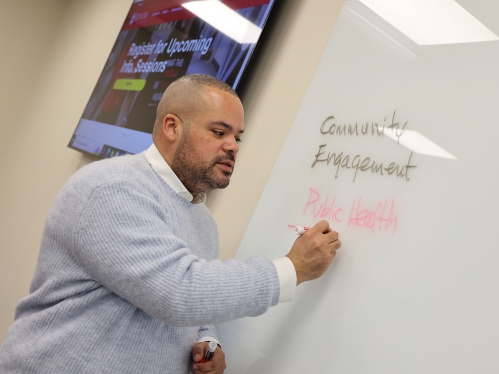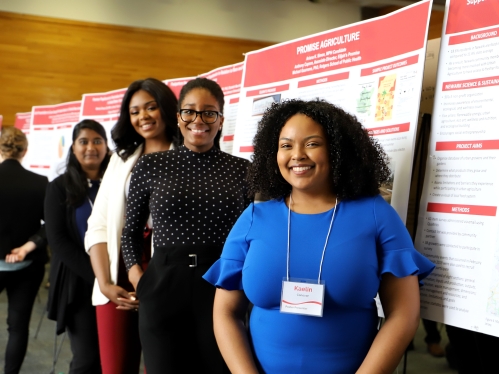
Here, Programs Drive Change
In a rapidly changing world, find a graduate degree program that meets the moment to ensure no one is left behind.
Innovating for a Changing World
The Rutgers School of Public Health is dedicated to addressing the dynamic and shifting demands of public health. With a focus on integrating advanced research with real-world applications, we prepare students to solve the most critical public health issues of today. Our forward-thinking graduate degree programs, such as the master of public health in LGBTQ health, population mental health, public health nutrition, environmental and occupational medicine, and others, are designed to tackle often complex and evolving public health challenges.

LGBTQ Health
The Rutgers School of Public Health was the first to develop a master of public health (MPH) in LGBTQ health degree, which is designed to support public health professionals dedicated to improving the health of LGBTQ people and populations.

Occupational and Environmental Medicine
The Rutgers School of Public Health's Master of Public Health (MPH) in Occupational and Environmental Medicine degree is designed to educate health care workers and physician trainees in the relevant health problems, policies, programs, and regulations that contribute to an individual’s health by understanding and learning how to manage and prevent illness and injury caused or influenced by agents in the home, community, and workplace environment.

Population Mental Health
The Rutgers School of Public Health’s master of public health (MPH) in population mental health degree prepares students to address the current challenges in mental health practice and reduce the societal burden of emotional distress, mental illness, substance abuse, alcohol use, and suicide.

Public Health Nutrition
The Rutgers School of Public Health’s master of public health (MPH) in public health nutrition degree prepares students to improve the nutrition and health of local and global populations.

Pharmacoepidemiology
The master of science (MS) in epidemiology degree, which offers the option to concentrate on pharmacoepidemiology, prepares students for public health, clinical practice, and population health research through comprehensive training in epidemiology theory, research methods, and analytical methods.
In collaboration with the Rutgers Center for Pharmacoepidemiology and Treatment Science (PETS), students receive in-depth training that spans epidemiology, pharmaceutical sciences, data science, and population health. PETS is home to eminent leaders in the field, including fellows, past presidents, and the current president of the International Society for Pharmacoepidemiology (ISPE), editors of Pharmacoepidemiology and Drug Safety (the leading journal of the discipline), and members of committees for the U.S. Food and Drug Administration, the National Institutes of Health, and the National Academy of Medicine. PETS faculty are widely published and funded by the National Institutes of Health, other government agencies, nonprofit organizations, and industry.








Ready to take the next step?